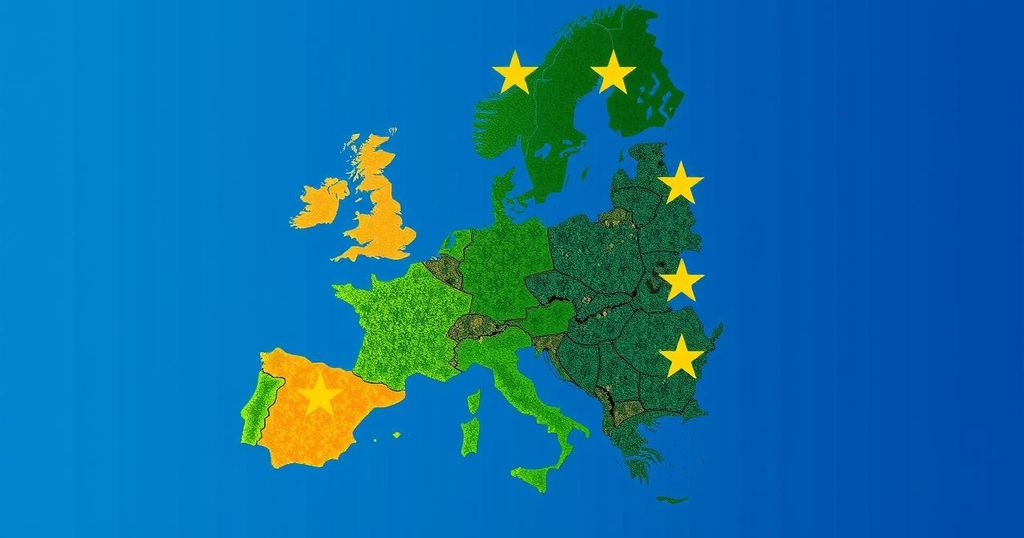Global heating is a significant social issue necessitating action from the EU, which is currently falling short in its climate obligations. The ongoing COP29 assesses financial frameworks for climate action amid increasing social injustices exacerbated by climate change. Evaluations indicate that the EU has already exceeded its carbon budget, underscoring the urgent need for policies that reflect principles of climate justice and accountability.
Global heating is increasingly acknowledged as a pressing social issue that demands immediate attention. The European Union (EU), as a major participant in the global climate discourse, has a profound responsibility to address this crisis. Current evaluations reveal that the EU’s efforts to combat climate change—though ambitious—are insufficient relative to its historical emissions and obligations. The ongoing COP29 meeting in Azerbaijan seeks to secure comprehensive financial frameworks for climate mitigation, yet the efficacy of such gatherings is under scrutiny due to a persistent failure to enact transformative actions that align with the commitments made under the Paris Agreement.
The looming threat of irreversible environmental tipping points underscores the urgency of implementing climate justice principles. The inequitable distribution of climate change impacts—where those least responsible bear the most significant burdens—compounds the complexity of the crisis. This injustice calls for a reassessment of roles among nations, particularly highlighting the EU’s disproportionate historical contributions to greenhouse gas emissions compared to its population.
Despite the EU’s aim to reduce net emissions by 55% by 2030 and achieve carbon neutrality by 2050, a recent analysis reveals that the EU may have already surpassed its carbon budget. This is particularly alarming, as seven out of ten scenarios reviewed indicated that the EU has exhausted its share of allowable emissions. This situation exacerbates the notion of climate injustice, suggesting that the EU’s policies do not adequately reflect its obligations or consider the social implications of climate change.
Participants at COP29 must urgently address climate justice in their discussions. To better incorporate these principles, they should establish more ambitious emission reduction targets that account for historical responsibilities and their socio-economic impacts. The imbalance of power and responsibility in climate actions must be rectified, with the Global North taking on a greater share of the burden to support global climate adaptation and mitigation efforts.
The discourse surrounding climate change primarily focuses on its environmental implications; however, its far-reaching social consequences require equal attention. The recent COP29 convened by Azerbaijan aims to address the need for a unified financial framework to combat climate change effectively. As the climate crisis evolves, it prompts discussions about justice and equity in climate actions, notably emphasizing the role of historically high-emission regions like the EU. The call for climate justice recognizes that those most affected by the crisis often lack the resources necessary to adapt and mitigate its effects, thereby necessitating a paradigm shift in how wealthier nations engage with their less developed counterparts in addressing climate change.
In summary, while the EU has established ambitious climate goals, recent assessments reveal that its policies are misaligned with its long-standing responsibilities regarding global greenhouse gas emissions. The implications of these findings indicate a pressing need for the EU and other industrialized nations to adopt a more equitable approach to climate action, emphasizing the principles of climate justice. As COP29 unfolds, it is vital for participating nations to acknowledge their historical responsibilities and work collectively towards more ambitious and socially equitable climate solutions.
Original Source: theconversation.com






